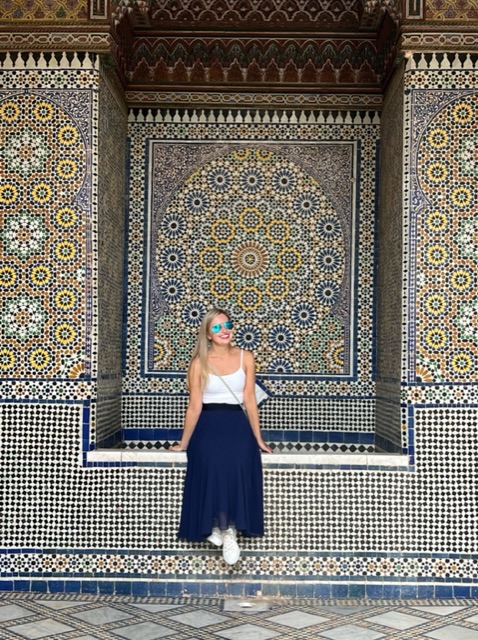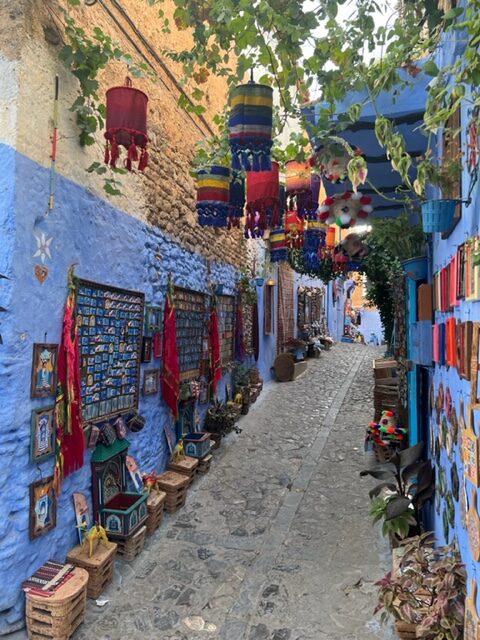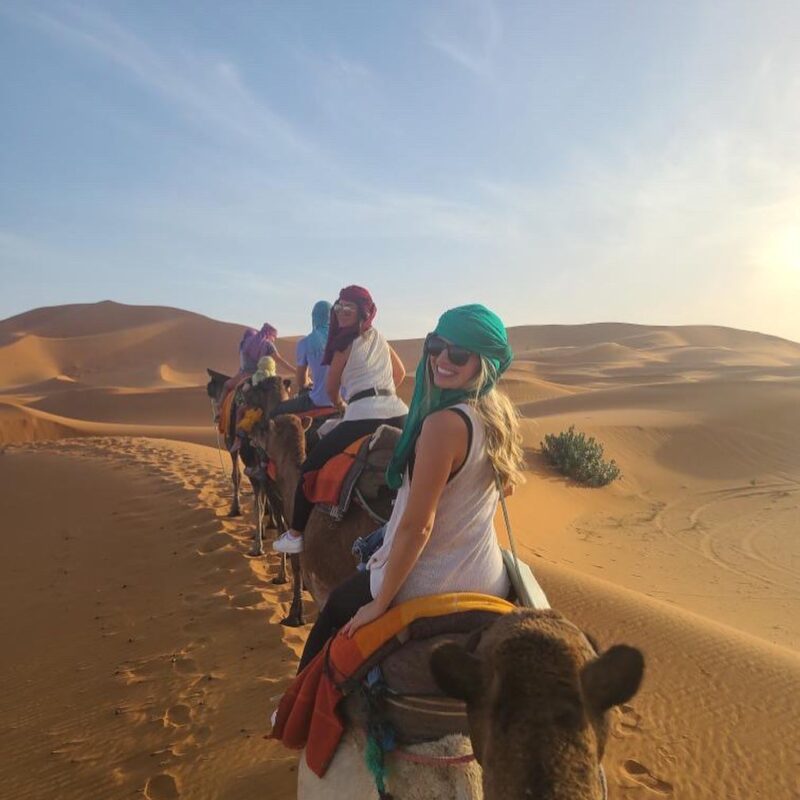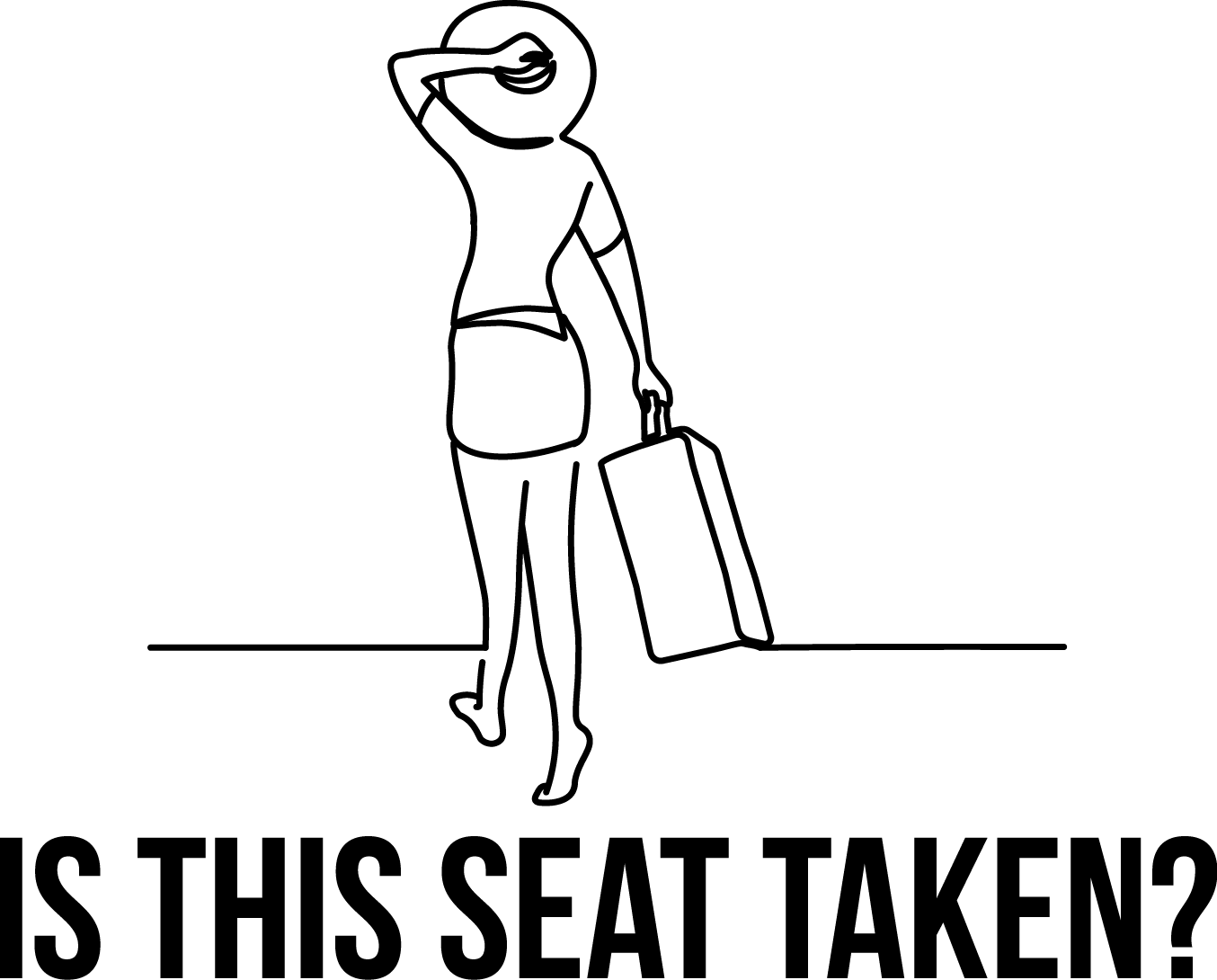


Fun facts and tips about Morocco and modern day life when traveling within and between the cities.
Expect all financial transactions to be through cash! Except for at the riads and hotels, almost everything we paid for was in dirhams.
The Moroccan Dirham (MAD) is a closed currency, so you can only obtain it when you arrive in Morocco. Try to get the cash in small denominations at the airport or your first city. It is beneficial for transportation, tipping and smaller meals. Taxi drivers or shop owners will often say they don’t have change. It’s a bluff!
Unless you are in a hotel retail store, haggle over all purchases. Start with 1/3 of the original asking price — 50% is usually considered an acceptable negotiation. Walking away is sometimes the best strategy.
Moroccans are prideful. The locals will share how amazing the country is – the craftsmanship, the architecture, the landscape — and they are not wrong!
Unless it is for work or education purposes, it is difficult for Moroccans to get Visas to travel. Our tour guide shared that he would love to travel to other places, but that his Visa request has never been accepted. This is why most Moroccans have never been outside of the country.
The locals will tell you the best places to buy souvenirs. In my experience: buy clothing, pottery and trinkets in Marrakesh, leather in Fes and art in Chefchaouen.
Staying within the Medinas (Marrakech, Fes, Chefchaouen) should be a no-brainer. The reason you visit Morocco is to experience the lively souks, markets and squares.
These tourist areas are extremely clean. Without cars, it’s a wonderful area to roam but keep an eye out for motor bikes, donkeys and pickpockets in the busier sections. In the more metropolitan cities, it’s a bit grittier.
As two American women, we never felt unsafe – our only annoyance was when men would insist on “showing us” where to go, unnecessarily touch our backs and then ask for money.
Consider Google Maps as more of a guide vs exact directions. It will usually lead you nearby to your destination but is not completely accurate. Always ask the shop owners for directions, instead of people on the street who may intentionally lead you astray.
If you are used to a hearty breakfast, opt for the meals at your accommodation. A Moroccan breakfast is likely juice, bread, jam and olives. Always olives. But at the riads and hotels, they will include eggs and yogurt and fruit.
Many locals still live in very traditional roles, especially in the smaller towns. The women spend their time at home, cooking and cleaning. You won’t see many women out and about in the cities.
For women, you will find that all websites suggest dressing conservatively when visiting. Though I agree for the sake of respecting the country, Morocco can be HOT. Wearing a tank top or longer shorts is completely fine. To be honest, if you are foreign – you will get stares either way.
During the day, you will see kids leaving the school around noon. They go home for 2 hours for lunch and then return to school until 6/7pm.
It’s not unusual for restaurants to also stop serving between lunch and dinner times.
The Call of Prayer can usually be heard in all areas of the Medinas or towns. We found it interesting that all other music, whether radio, stereo or live, stopped during that time.
One of the most surprising parts of Morocco, was the diverse landscape. Snow capped mountains, rolling green hills, beaches with white sandy beaches and deserts with palm tree oases. It is worth driving or taking the train between cities to see the scenery.
In the main squares, you will often find markets, performers, snake charmers and animal holders. If you take a photo, they will ask you for payment. My least favorite area was the Jemaa el-Fnaa Square in Marrakesh with the cobras, fangs removed and starved until their master starts playing a flute, and the monkeys, chained and in diapers. Skip these if you can, and instead get a juice and check out the market stalls. At night, dozens of food stalls are assembled with tables and chairs.
Cats are everywhere. You’ve been warned.
The Merzouga desert is absolutely memorable and worthwhile but it’s far from everything else. If you go, anticipate some long drives.
After Arabic, French is spoken and a great compromise if you struggle with the Arabic phrases. Locals appreciate the “thank you’s” and “hello” basics and will often joke: oh you speak Arabic!
Every menu will offer tagine and couscous. It’s delicious but gets old. Do you research beforehand and try other dishes depending on your location! For example, seafood in Tangier.
Given Morocco is a Muslim country, if you want alcohol you will want to seek out hotels, fine dining restaurants or grocery stores ahead of time. For example, in Chefchaouen there are two places within the Medina where you can buy alcohol. Otherwise, nice hotels are usually a good starting point.
The wine is incredible and worth the search. Keep an eye out for Chateau Roslane.
